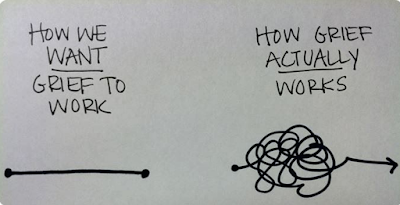Who Controls History? Facebook and the "Napalm Girl" Photograph
 It is one of the most iconic photographs of the twentieth century. I would argue that for many, it tells the story of the American war in Vietnam, or the Vietnam War, more eloquently than any other image. The picture is often called simply, "the napalm girl."
It is one of the most iconic photographs of the twentieth century. I would argue that for many, it tells the story of the American war in Vietnam, or the Vietnam War, more eloquently than any other image. The picture is often called simply, "the napalm girl."And Facebook decided to censor it. Because the child depicted is not wearing any clothes.
Because she was burned so badly that she was basically on fire.
Phan Thj Kim Phúc was a nine year old child when South Vietnamese planes dropped a napalm bomb on her and others in her community, allegedly mistaking them for North Vietnamese combatants. While water boils at 212 degrees Fahrenheit, napalm generates temps in the 1,500-2,000 degree range. She was running away from the bomb, wearing no clothes because her body was so badly burned that local doctors didn't think she'd make it. (She did and now is an ambassador on children's issues for the UN.)
The image was recently included in a Norwegian news article on iconic war imagery and a link to the article, running the image, was posted on Facebook this week. It was removed, ultimately, with the whole article. Facebook made the following justification, "While we recognize that this photo is iconic, it's difficult to create a distinction between allowing a photograph of a nude child in one instance and not others."
This afternoon, Facebook backed down from its position and decided to allow users to post the image after all. You can read more about it here.
I still find the whole thing disturbing. The idea that Facebook will only tweak its "review mechanisms" or algorithms when global media erupts?
The larger issue is that we are in this position in the first place. Facebook is making distinctions about the body, and about the political and symbolic meanings of the body, all day everyday. How does that affect us and our evolving understandings of what belongs in social and public discourse? And more importantly, who on earth gave Facebook the right to become the arbiter of which images of the body can be shared widely?
Let's face it, Facebook is the "sharing-widely" tool du jour. We put up with a lot because we find Facebook a convenient and accessible tool. We make compromises.
It reminds me of a story about how Walmart has so much purchasing power that the corporation could dictate to manufacturers what to make and at what price point. It's one thing to have Walmart executives deciding which razors and toothpaste are going to get produced. But allowing social media companies the right to control our access to other types of media and to critical historical sources? No.
Please post the picture above on your Facebook feed today. And maybe consider posting controversial images more often. Let Facebook know that you won't have its algorithms censor your history.









Comments
Post a Comment